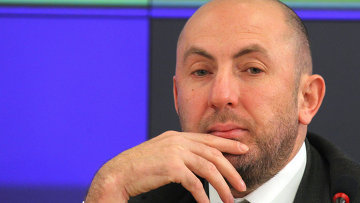MOSCOW, October 26 (RAPSI) – The St. Petersburg Commercial Court has completed bankruptcy proceedings against JFC Group, head company for the largest importer of fruits to Russia of the same name, previously owned by businessman Vladimir Kekhman, the court ruling reads.
In September 2015, the court found Kekhman’s company bankrupt.
In July 2016, Kekhman himself was found bankrupt under an application of Sberbank.
On July 21 of the same year, a court in St. Petersburg dismissed a petition lodged by Kekhman seeking the recognition of London’s High Court’s judgment declaring him bankrupt. Kekhman’s financial executive Mikhail Bologov, Russia’s Federal Tax Service, Sberbank, Rosbank, Promsvyazbank, Raiffeisenbank, UniCredit Bank, Aquamarine Company and Pulkovo Trade Company are named as interested parties in the dispute.
A representative of Kekhman claimed during bankruptcy hearings that the former head of JFC had no obligations before Sberbank because he had already been declared bankrupt by The High Court of Justice of England in 2012, and Sberbank received its share from sales of Kekhman’s property. A representative of Sberbank, on the other hand, claimed that the bank was not involved in the process and did not receive any compensation. According to the Sberbank’s representative, the bank had rulings of several Russian courts on debt recovery from Kekhman.
Nevertheless, Kekhman’s lawyer insisted that the ruling of The High Court of Justice of England had been recognized by Sberbank and was to be complied with in Russia.
In its ruling, the court pointed out that in the absence of international treaties, entered into by the Russian Federation, decisions on bankruptcies taken in foreign jurisdictions were to be recognized in Russia only on the reciprocity basis unless otherwise stipulated by federal laws. At present, the court stressed, the Russian Federation was not a party in any international treaty on bankruptcy issues.
In April 2017, the St. Petersburg Commercial Court dismissing a Sberbank’s motion to impose subsidiary liability on Kekhman.
During the audit of JFC its temporary manager found out that the company was unprofitable from 2012 to 2015. Kekhman, acting as CEO of JFC, allegedly conducted unprofitable business on purpose, abusing his power and causing damage to the company.
This damage allegedly prevented JFC from repaying debts to creditors making Kekhman legible for being brought to subsidiary responsibility. Overall, the company’s losses are estimated at 4 billion rubles ($69.5 million).



